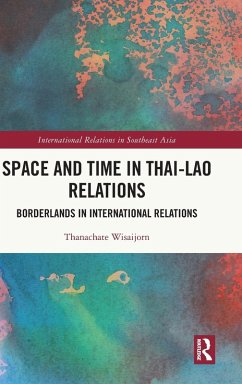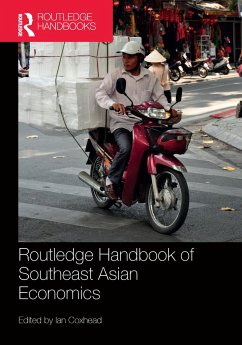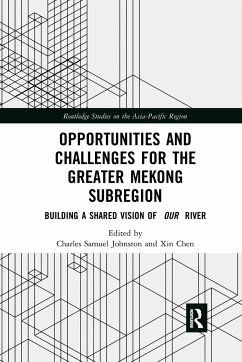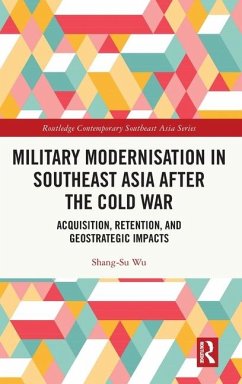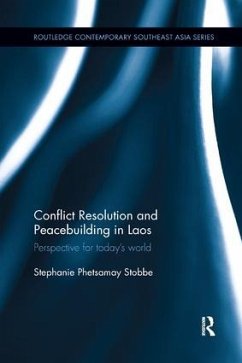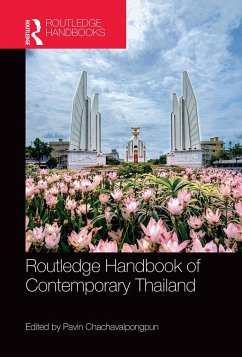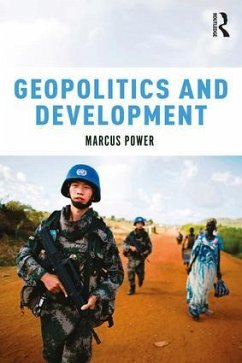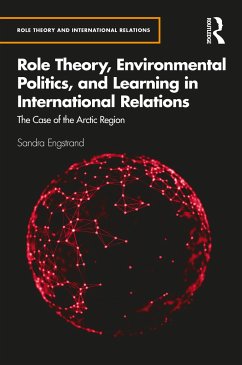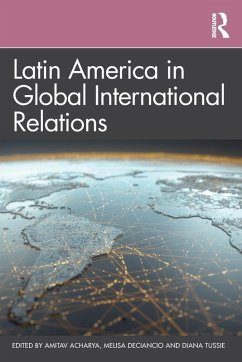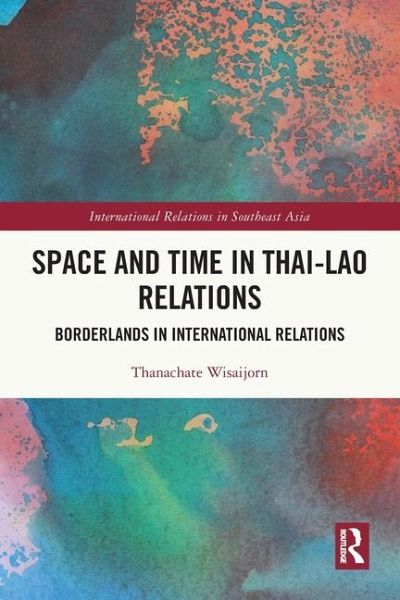
Space and Time in Thai-Lao Relations
Borderlands in International Relations
Versandkostenfrei!
Versandfertig in 6-10 Tagen
45,99 €
inkl. MwSt.
Weitere Ausgaben:

PAYBACK Punkte
23 °P sammeln!
Wisaijorn explores how the concepts of space and temporality in traditional geopolitics have influenced the understanding of the Thai-Lao border since Laos became independent in 1954.Arguing that a state-centric conceptualisation of the Thailand-Laos border falls into both a territorial and temporal trap, Wisaijorn contests that privileging a theoretical border silences the voices of people on the ground. In doing so, he expands the concept of a temporal trap with the addition of a temporal dimension - analysing how the state claims a monopoly not only on a geography, but also a history. Roote...
Wisaijorn explores how the concepts of space and temporality in traditional geopolitics have influenced the understanding of the Thai-Lao border since Laos became independent in 1954.
Arguing that a state-centric conceptualisation of the Thailand-Laos border falls into both a territorial and temporal trap, Wisaijorn contests that privileging a theoretical border silences the voices of people on the ground. In doing so, he expands the concept of a temporal trap with the addition of a temporal dimension - analysing how the state claims a monopoly not only on a geography, but also a history. Rooted in orientalism, colonialism and the expediencies of the Cold War, the border operates in the interest of elites and ignores the lived reality of peoples on the ground. By bringing these voices back into the discussion, Wisaijorn presents a more complex framework, which reveals a human dimension missing not only from this particular case, but more broadly from the conceptions ofborders within International Relations theory.
A fascinating case study for scholars with an interest in mainland Southeast Asia, which also makes a valuable theoretical contribution to International relations discourse.
Arguing that a state-centric conceptualisation of the Thailand-Laos border falls into both a territorial and temporal trap, Wisaijorn contests that privileging a theoretical border silences the voices of people on the ground. In doing so, he expands the concept of a temporal trap with the addition of a temporal dimension - analysing how the state claims a monopoly not only on a geography, but also a history. Rooted in orientalism, colonialism and the expediencies of the Cold War, the border operates in the interest of elites and ignores the lived reality of peoples on the ground. By bringing these voices back into the discussion, Wisaijorn presents a more complex framework, which reveals a human dimension missing not only from this particular case, but more broadly from the conceptions ofborders within International Relations theory.
A fascinating case study for scholars with an interest in mainland Southeast Asia, which also makes a valuable theoretical contribution to International relations discourse.





